- By Sarah Rice, Chief People Officer at Skynamo
Mental health challenges have reached a new global high with 42% of adults worldwide saying they feel a lot of worries, 41% reporting being stressed and 28% experiencing unhappiness. Burnout is also on the rise, with 49% of people suffering from these symptoms at work. Hybrid working is adding to people’s stress by increasing a sense of isolation, with the fear and uncertainty of the modern world making us ever more anxious.
With mental health challenges now being the norm among employees across all organisational levels, people are talking about mental health at work more than ever before. While this is an important step in the right direction, especially in terms of reducing stigma and getting help, many employees typically end up confiding in their manager who is not formally trained to manage this kind of challenge.
This happens because nowadays, we don’t have the kinds of relationships that we used to have with our family doctors or religious leaders. We have lost our extended community support networks, so all the old ways of managing mental health or discomfort have been taken away from us. Because our managers are in charge of us and our well-being at work, in many of the ways that doctors and priests used to be, we end up going to them with our mental health struggles. But they don’t have the spiritual grounding of a priesthood nor the mandate of a doctor so are often at a loss as to how to adequately and safely support their colleague.
Additionally, older managers who are managing Millennials and Gen Zs have a different generational understanding of how to deal with mental health issues. This can put more pressure on management, but as more of the Millennial generation move into leadership roles, we also might see a shift in sensitivity towards the mental health conversation.
As mental health challenges increasingly show up in the workplace – which has knock-on effects including decreased productivity, poor quality of work, increased absenteeism and even high staff turnover – companies are expected to deal with it to a far greater extent. This raises a number of important questions like what does the business do about employees’ mental health, how much responsibility does the business assume; and who within the business is responsible?
Empowering vs rescuing: where to draw the line
Businesses need to ensure that they don’t infantilise employees, but rather empower them. While there is always the temptation to rescue people, we need to continually treat them as fully formed adults who have agency and know what they need to be well, they just need some support to access what they need. Rescuing only creates victims and fosters helplessness, which in turn does not make for high-performing employees. Rather, we should help people become more resilient and more capable in their lives.
An attitude of empowerment also lets managers off the hook. For example, if a person on the team is going through a messy divorce, managers need to be able to draw the line between accommodating someone who is struggling and covering for their non-performance. And the policies that already exist inside the business can help with this. So, instead of the manager picking up the slack, the employee could use their annual leave to take some time off to process what they’re going through or sick leave in response to mental health advice from their medical professional.
Turning to experts may be just what the doctor ordered
Instead of managers shouldering the weight, companies can also provide tools and resources such as online therapy and wellness programmes, as well as books, articles and access to associations where employees can get more information. But businesses need to be careful not to overdo this as employees need to take ownership of their mental health journey.
At Skynamo, for instance, everyone from our housekeeper to our CEO can make use of online therapy sessions anonymously through a service called Ollie.health. We don’t know who’s accessing the service, nor what they’re talking about, but we do know that every month we assist eight to 10 people in accessing counselling support. We buy mental health credits which get shared across the business and those who need it take it up. This is a great tool because it’s something that the business can provide without it being directly involved.
Evolving skills needed by modern leaders
With employees relying more on their managers to cope with their mental health struggles, there is additional pressure on managers. This means the skills required to be a good manager are changing. In the past, managers managed the work. Now, they are having to support and contain the people doing the work and do so with empathy.
Modern managers need to be skilled in coaching, facilitation and empathy if they are to be able to give their teams what they need to succeed. This, in turn, is putting pressure on the PeopleOps and HR teams to provide training in areas that weren’t considered important before. The whole business needs to adjust to the evolving needs of its people.
This doesn’t just mean sending them on coaching courses, it also extends to having leadership mentor and demonstrate empathy in the way that the business is run. Additionally, in the same way that therapists need therapists, managers also need coaches to process the emotional work that they’re now having to do.
Fast-paced solutions are needed in a fast-paced world
As we’re working in the information economy, where people’s psychological safety gives them room to be creative and innovative, establishing this has now become one of businesses’ main jobs. However, leaders need to clarify the role that the business takes in its employees’ mental health and wellness journey, and then communicate it so that everyone knows what to expect.
With inflation rising, the risk of a recession looming, fuel price fluctuations and load shedding becoming an at least twice daily occurrence, employees’ stress is understandably at an all-time high – even more so than in 2020 (the previous all-time high) – so clear boundaries regarding the role of the business are now more important than ever. If not communicated and enforced, the business will suffer even more so under these external pressures.


